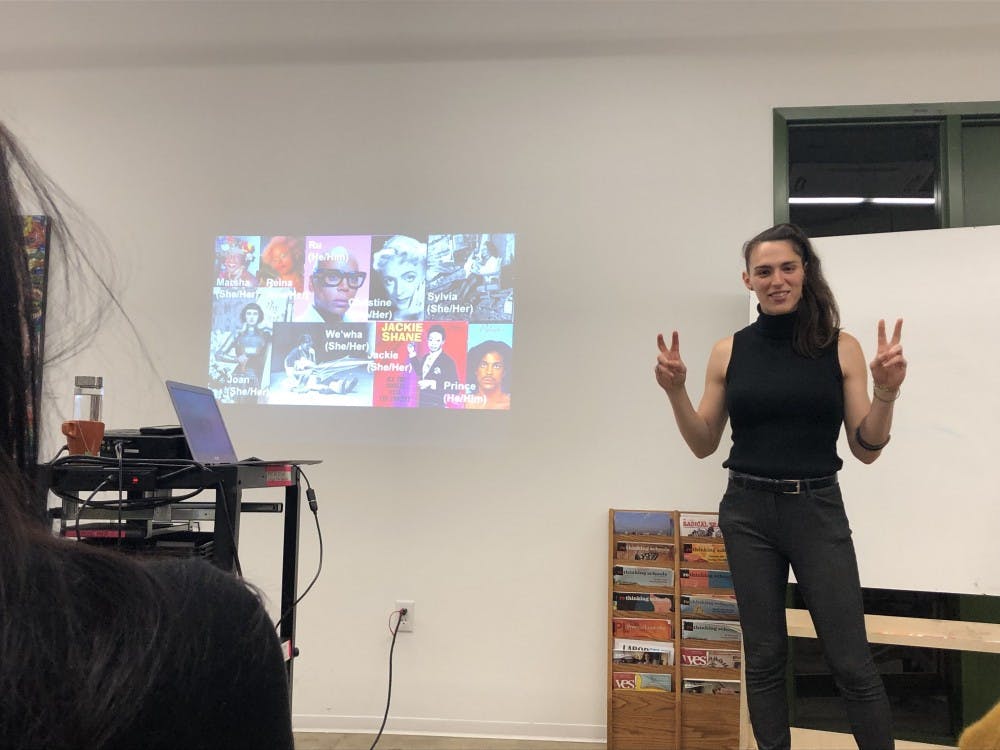Ava Pipitone, the executive director of the Baltimore Transgender Alliance, discussed how gender relates to all aspects of life — including race and class — at an event called Trans Issues are not Trans Issues. The Impact Hub hosted the event, which took place on Tuesday.
Pipitone gained attention in Baltimore’s transgender and gender non-conforming communities as a worker-owner at Red Emma’s Bookstore and as a co-founder of HostHome Inc., a home-sharing platform that tackles housing instability for LGBTQ people.
She believes that traditional notions of gender are the result of power structures, including those surrounding race, capitalism and the patriarchy. Pipitone added that most people learn about gender from white, cisgender men.
“Who do you think explains your primary sex characteristics to you? Most of us learn about our primary sex characteristics from a cis white dude, also called a doctor. Most of u got our concepts of gender from whiteness, from colonization, from cis white men,” she said.
According to Pipitone, one of the ways in which Western conceptions of gender have exerted power over people is by categorizing and labeling people.
“We, as white people, need to stop controlling and labeling other systems and other categories on this planet,” she said.
Pipitone argued that Western cultures oversimplify gender by claiming that there are only two. She explained that, in addition to physical features and genitalia, hormones and internal processes play a significant role in a person’s gender.
Even though gender exists in a broad space of political and cultural forces, Pipitone emphasized the private nature of gender. She highlighted these themes throughout the presentation and discussion, as audience members were encouraged to share when and how they first realized their gender, or how gender influences the way they dress every morning.
Umbar Kassa, a photographer and designer working at the Impact Hub, said that she admired Pipitone’s work in the trans community. Kassa stated that the event taught her a lesson in vulnerability.
“Gender is a sensitive topic, and so much of it is about allowing yourself to be vulnerable. And that includes feeling vulnerable enough to say that my previous thoughts have been skewed by society, and understanding that I don’t understand everything,” Kassa said. “I’m inspired by Pipitone to practice inclusion in my platform, and to explain what it means to be a first-generation and diaspora.”
Jamie Grace is with the Baltimore Trans Alliance and also attended the event to support Pipitone. As an individual who has delivered presentations on similar topics herself, she enjoyed watching the audience members make connections between trans issues and other issues such as race, class and immigration.
“The place that a lot of people make mistakes is that trans people are trans issues. Or that it’s on the trans people to build and facilitate conversations about their own trans-ness,” Grace said. “What the trainings with the Baltimore Trans Alliance does well is bring everybody into an understanding that they have a gender, that that gender comes from a place. That’s the starting place for a conversation, not on the trans person’s difference.”





